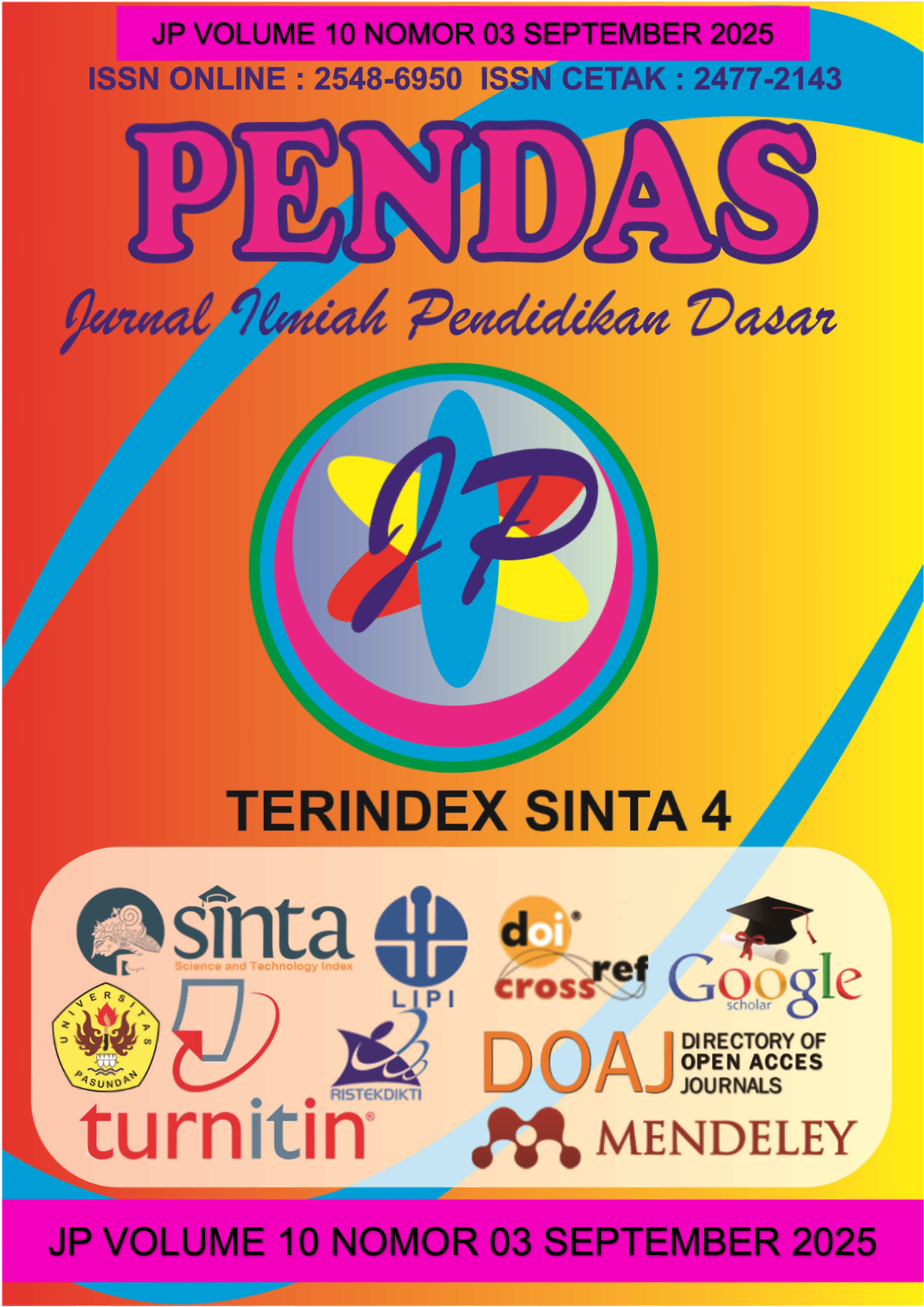EFEKTIVITAS PROGRAM MAGANG PRAKTIK INDUSTRI: TINJAUAN DARI PERSPEKTIF MAHASISWA PENDIDIKAN VOKASIONAL SENI KULINER UMS RAPPANG
DOI:
https://doi.org/10.23969/jp.v10i03.33048Keywords:
effectiveness, internship, industrial practice, vocational education, experiential learningAbstract
This study assesses the effectiveness of the industrial practice internship program
for UMS Rappang Culinary Arts Vocational Education students using a mixed-
method approach involving questionnaires, open-ended responses, and analysis of
final internship reports. Findings show the program is effective to very effective,
particularly in technical skills, work readiness, and the relevance of theory to
practice. Qualitative data highlight meaningful experiences consistent with Kolb’s
(1984) experiential learning stages and Schermerhorn & Bachrach’s (2023)
organizational effectiveness theory. Secondary data support these results,
indicating growth in skills, teamwork, and innovation. Recommendations include
improving pre-internship preparation, strengthening mentoring, and enhancing
campus–industry collaboration.
Downloads
References
Alharethi, T., Awan, M. I., & Saleem,
M. S. (2025). Investigating the
impact of internship experience
on work readiness among
hospitality program students: the
moderating role of student
mindfulness. Frontiers in
Education, 10(May), 1–16.
https://doi.org/10.3389/feduc.202
5.1497721
B. Dato, R. (2024). How Internships
Influenced Professional
Development? Hotel and
Restaurant Management
Graduate Perspectives.
International Journal of Social
Science and Human Research,
7(05), 3391–3396.
https://doi.org/10.47191/ijsshr/v7-
i05-112
Candera, A., Pratiwi, N., & Wijaya, H.(2022). Pengaruh program
magang terhadap kesiapan kerja
mahasiswa. Jurnal Pendidikan
Dan Pengembangan Karier, 5(1),
45–53.
Candra Susanto, P., Ulfah Arini, D.,
Yuntina, L., Panatap
Soehaditama, J., & Nuraeni, N.
(2024). Konsep Penelitian
Kuantitatif: Populasi, Sampel, dan
Analisis Data (Sebuah Tinjauan
Pustaka). Jurnal Ilmu Multidisplin,
3(1), 1–12.
https://doi.org/10.38035/jim.v3i1.
504
D Nugroho, S Rahman, & T Utami.
(2023). Integrasi kurikulum dan
praktik industri untuk
meningkatkan kompetensi
mahasiswa. Jurnal Pendidikan
Vokasi, 15(1), 89–87.
Guo, X. (2024). Research on
Strategies to Address Problems
in Internship Management for
Vocational Schools. Advances in
Vocational and Technical
Education, 6(6).
https://doi.org/10.23977/avte.202
4.060608
Gustiawan, W., Dwi Putri, B. K., Azra,
T., & Permata Sari, M. (2025).
Internship programme and work
readiness among vocational
students. Issues and
Perspectives in Business and
Social Sciences, 5(1), 15–26.
https://doi.org/10.33093/ipbss.20
25.5.1.2
Hamdani, H., Jalinus, N., & Abdullah,
R. (2024). Era Baru Pendidikan
Vokasi: Menuju Merdeka Belajar
dan Tantangan Dunia Kerja 4.0.
Jurnal Ilmiah Pendidikan Teknik
Dan Kejuruan, 2, 17.
Hidayat, R., & Sari, M. (2021).
Efektivitas program magang
dalam meningkatkan
keterampilan praktis mahasiswa.
Jurnal Pendidikan Teknologi Dan
Kejuruan, 23(2), 112–120.
Kolb, D. (1984). Experiential learning:
Experience as the source of
learning and development.
Englewood Cliffs, NJ: Prentice
Hall.
Lestari, S., & Widodo, A. (2019).
Tantangan dalam pelaksanaan
program magang: Studi kasus di
universitas X. Jurnal Manajemen
Pendidikan, 10(3), 233–240.
Liu, C. W., Zhuang, W. L., Leong, A.
M. W., Wu, S. C., & Huan, T. C.
(2024). The impact of mentorship
on internship satisfaction among
hospitality interns: The
moderating role of thriving at
work. International Journal of
Management Education, 22(3).
https://doi.org/10.1016/j.ijme.202
4.101061
Mohd Noor, N. A., Ariffin, K., Darus, N.
A., & Alias, A. (2020). The
Perceptions of Students’
Experiential Learning in Relation
to Theoretical Concept with Real
Practice. International Journal of
Academic Research in
Progressive Education and
Development, 9(4), 25–34.
https://doi.org/10.6007/ijarped/v9
-i4/8176
Sari, R., Al Basyar, A., Rahman, A., &
Wardoyo, S. (2024). Peran
Pendidikan Vokasi dalam
Meningkatkan Keterampilan
Kerja di Era Industri 4.0. Edukatif:
Jurnal Ilmu Pendidikan, 6, 6.
Schermerhorn, J. R., & Bachrach, D.
G. (2023). Management. Wiley.
https://books.google.co.id/books
?id=GXvVEAAAQBAJ
Sugiyono, D. (2019). Metode
penelitian kuantitatif kualitatif dan
R&D. In Penerbit Alfabeta (Issue
January).
Suhartanta, S., Soewito, N., Hiryanto,
H., Sugesti, N., Efendi, Y.,
Rahayu, S. P., & Kamin, Y. Bin.(2024). Evaluation of student
internship programs to support
the sustainability of vocational
education institutions and
industrial cooperation programs.
Jurnal Pendidikan Vokasi, 14(1),
63–73.
https://doi.org/10.21831/jpv.v14i1
.63585
Suhartini, Suardi Zain, & Nurzin, M.
(2017). EFEKTIVITAS TEKNIK
PENGANDAIAN DIRI DALAM
PEMBELAJARAN MENULIS
CERITA PENDEK. Jurnal
Retorika, 10(2), 100–105.
https://doi.org/10.26858/retorika.
v
Suryanto, B. (2020). Peningkatan
efektivitas program magang
melalui kerja sama industri.
Jurnal Pendidikan Dan
Kebudayaan, 22(1), 75–83.
Syam, S. (2020). Pengaruh Efektifitas
Dan Efisiensi Kerja Terhadap.
Jurnal Ilmu Manajemen, 4(2),
128–152.
Yusuf, M., & Widyaningsih, S. (2022).
Efektivitas Program Praktik Kerja
Industri (Prakerin): Analisis dari
Perspektif Industri. Jurnal
Pendidikan Vokasi Teknik
Indonesia, 1, 4.
Downloads
Published
Issue
Section
License
Copyright (c) 2025 Pendas : Jurnal Ilmiah Pendidikan Dasar

This work is licensed under a Creative Commons Attribution 4.0 International License.














































